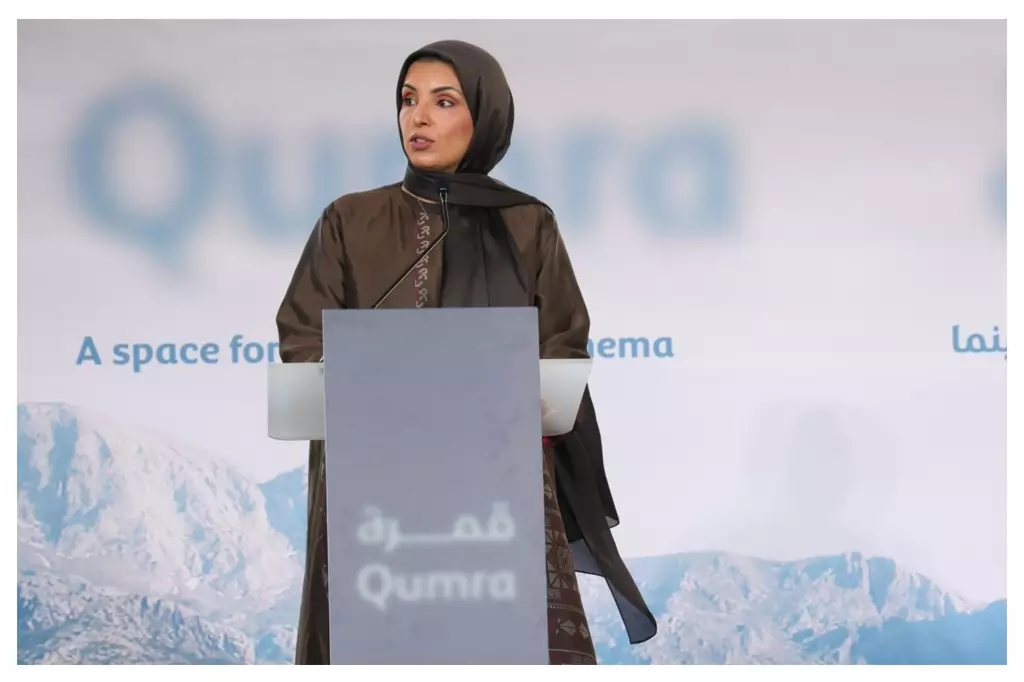As global tensions escalate, the convergence of art and activism has never felt more critical. The ongoing Israel-Gaza conflict remains a focal point, particularly bringing into sharp relief the experiences of marginalized communities. The recent opening of the Doha Film Institute’s (DFI) annual talent and project meeting served as a stark reminder of the current inequalities rife within our world. With the backdrop of a burgeoning humanitarian crisis, 300 participants gathered at Doha’s Museum of Islamic Art, uniting filmmakers, artists, and advocates committed to telling untold stories. The event was not merely a celebration of cinema but a poignant reflection on the implications of artistic expression in a time fraught with conflict.
A Strong Voice Amidst Silence
In her impactful opening address, DFI CEO Fatma Al Remaihi did not shy away from the stark realities that overshadow these artistic endeavors. She eloquently articulated the dangers of “erasing voices in the region,” using the recent attack on Palestinian filmmaker Hamdan Ballal to underscore her point. Ballal’s Oscar-winning documentary, “No Other Land,” chronicles the experiences of Palestinian villagers in the face of ongoing oppression, positioning the work as a powerful testament to resilience amid adversity. Al Remaihi’s remarks serve to draw attention to the ongoing threats facing artists, underlining a disturbing trend where silence is often chosen over solidarity.
The director’s declaration that “the promise of peace…are merely cover stories” strikes at the heart of a deeply entrenched narrative that seeks to obliterate the voices of those impacted by violence. These are not mere political statements; they are a call to action for artists everywhere. The DFI is marking its 15th anniversary—the very mission of the organization remains a banner of hope amidst despair in a world where the cultural and political landscapes are increasingly intertwined.
The Harrowing Impact of Conflict on Art
The escalations of violence in the Middle East cast a long shadow over creative expression. Following renewed military operations in Gaza, which have resulted in unspeakable loss and displacement, the urgency for artists to speak up is magnified. With over 50,000 reported deaths in Gaza and an overwhelming number of displaced individuals, the cost of silence is high. Al Remaihi’s assertion that “cinema is more than just art” resonates deeply; it is indeed a vital instrument of resistance, a lifeline for storytelling in the face of systemic eradication. As iconic narratives emerge from the region, they bear witness to resilience, defiance, and the need for understanding across divides.
The interconnectedness of global narratives demands that artists not only bear the responsibility of representation but also confront the forces that threaten to silence them. Spaces like the DFI’s Qumra are essential, not just for honing cinematic craft but as sanctuaries where diverse voices can thrive, showcasing works that reflect both struggle and strength in opposition to oppressive experiences.
Empathy over Apathy: The Role of Institutions
When cultural institutions falter in their duty to advocate for marginalized voices, they risk perpetuating the cycles of oppression. Al Remaihi highlighted the recent fervor surrounding the Academy of Motion Picture Arts and Sciences’ apology for neglecting to mention Ballal’s name amidst rising violence against him. The importance of this recognition cannot be understated; it reflects the wider responsibility that influential organizations carry. Institutions must strive to foster environments where stories of adversity are amplified, not overlooked. The arts hold boundless potential for empathy and understanding, and the inherent responsibility to champion inclusive narratives is one that organizations cannot afford to shun.
A Call to Activism Through Storytelling
In these turbulent times, storytelling emerges as a potent force for change. The DFI’s commitment to nurturing diverse voices is more than an artistic mission; it is a pledge to resilience, a stand against the forces bent on erased histories. With the escalating violence in regions like Gaza, the urgency of this commitment resonates deeply. As filmmakers gather to explore their narratives, they embody a spirit of defiance, elevating the stories of those whose lives are irrevocably altered by conflict.
Such initiatives must galvanize support, encouraging a global community to listen and act. Each poem, film, or artwork that emerges is a refusal to submit to silence; it becomes a beacon of hope in a world that desperately needs it. In our collective pursuit of truth through art, we navigate the murky waters of humanity’s struggles and triumphs, merging activism with artistry in ways that can inspire monumental change.


Leave a Reply